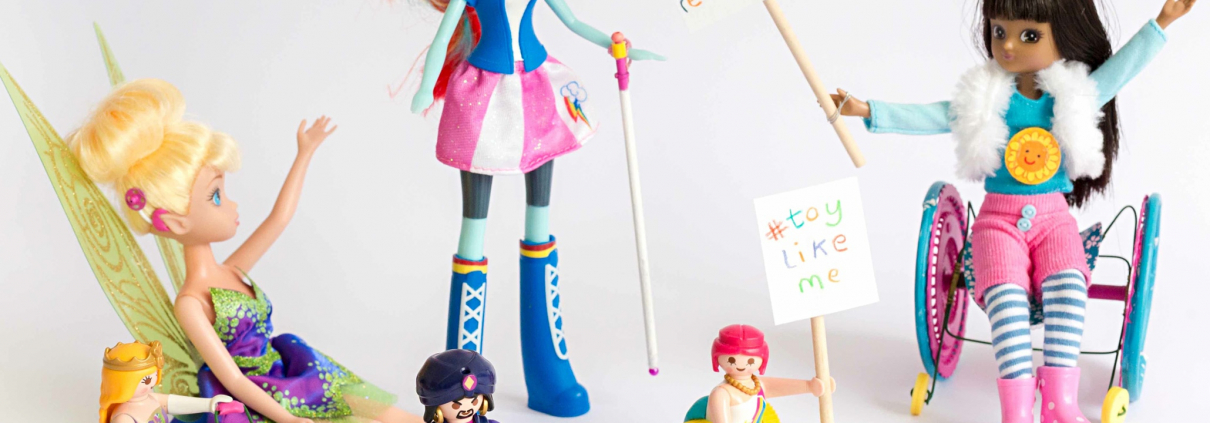Children’s Toys Showcasing Disability in a Positive Light

Many children aspire to be just like the people that surround them on a daily basis while they are growing up. Kids often use toys to role-play and live out their dreams, setting up classrooms or workplaces during playtime. During this impressionable period, it can be difficult for kids with physical or developmental disabilities to understand why their dolls and action figures all look a particular way, or have features that differ from their own, such as not needing to use a wheelchair or wear a hearing aid. Growing up with toys that do not properly represent the details that make each of us unique can lead to kids with disabilities feeling alienated.
Facebook to the Rescue
To combat the idea that toys are not made in everyone’s image and likeness, the ‘Toy Like Me’ Facebook group started the hash tag #ToyLikeMe. This phrase was to expand on the thought that there are over 150 million children worldwide faced with a disability, and toys should be made for them that they are able to relate to. This Facebook group encouraged parents to reach out to the toy industry and ask them to expand their lines to include all types of children.
Parents began to post images of toys and dolls that they had given a home makeover to in order to have them better reflect their child’s disability. Cochlear implants were added to the dolls of girls with hearing problems, dogs that came with dolls for show were turned into seeing eye dogs, and toys that originally came with all of their body parts were given prosthetics.
“Makies” Makes a Change
A London based toy maker, Makies, saw these images and decided to start a new line of dolls that positively featured disabilities. Makies uniquely uses 3-D printers to create custom-made dolls, so they are able to create dolls that other companies are not. Their line of dolls includes a girl who needs a cane and glasses for her visual impairment and another who is deaf and speaks in sign language. There is also a doll that needs hearing aids, and a doll with a vascular birthmark on her face. Next, Makies hopes to create a wheelchair accessory that can be purchased with any of their dolls.
A Step in the Right Direction
It is incredibly important for children to grow up with a positive image of both their bodies and their minds, and this can be improved if the toys they aspire to be like correctly portray disabilities that they may have.
Visit Facebook for more info on the Toy Like Me campaign.
The National Mobility Equipment Dealers Association (NMEDA) is an advocate for mobility and accessibility for drivers with disabilities. If you need help with converting or buying a handicap accessible van, car or truck, please consider one of our Quality Assurance Program dealers. Every NMEDA QAP dealer and technician has been trained and accredited in the highest best practice standards of quality and service to ensure safe and reliable transportation.
